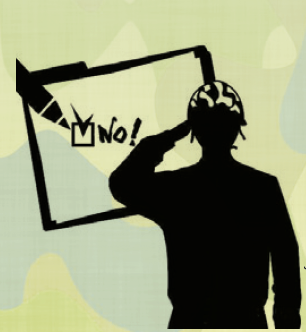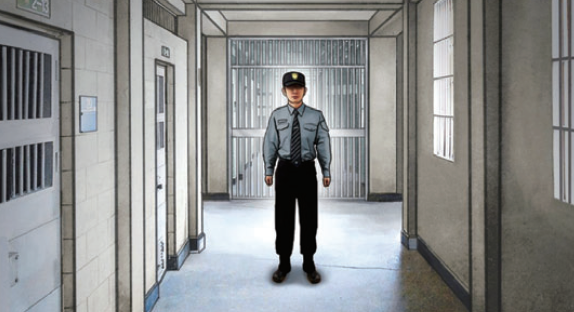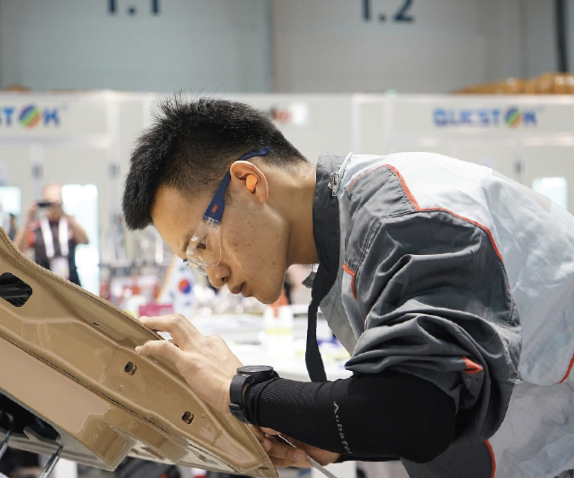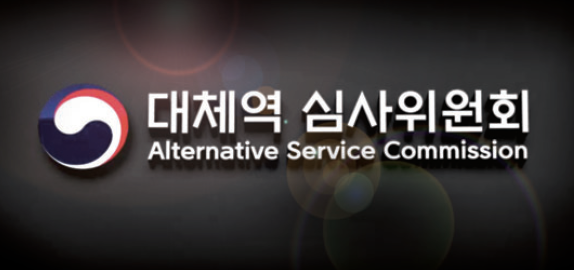From famous entertainers to the children of politicians, military service is a sensitive issue in Korea. One of the hot issues related to military service is introducing alternative military service to conscientious objectors. On October 26th, several prisons implemented alternative service for the first time, which triggered a societal debate. Hence, the Sungkyun Times (SKT) will be introducing the concept of the alternative service system, some associated problems, and possible solutions for a better system.
Conscientious Objection and Alternative Service
Background of Alternative Military Service
Alternative military service was established as a countermeasure of conscientious objection to military service. The concept of conscientious objection refers to the act of refusing to perform military service due to religious or moral beliefs. The word conscientious refers to the conscience proclaimed in the Constitution, which is not akin to the universal meaning of “morally good.” Until now, the Constitutional Court and Supreme Court have viewed freedom of consciousness as opposition to the public interest. Also, they prioritized public interest over private interest, imposing criminal penalties upon conscientious objectors. In November 2018, however, the Supreme Court approved conscientious objection as “fair objection.” In 2018, the Constitutional Court ruled that the country’s law was unconstitutional for failing to provide an alternative service for conscientious objectors. Laws are intended to change with the current society and the provision of punishment is against the principle of democracy. Last year, the National Assembly enacted the bill enabling alternative service. Hence, it is possible for those who refuse military service to do alternative service.
Judging Procedure of Alternative Service
Though alternative service is now an option for conscientious objectors, not all who apply are eligible to serve as an alternative service conscript. They must demonstrate their belief to a committee under the Military Manpower Administration (MMA). Starting June 2020, a committee has begun accepting applications for alternative military service. The committee went through a process that includes a fact-finding proceeding, consideration of the preliminary committee, and the decision of the review committee, before deciding whether the applicant qualifies. To accurately judge the recruit’s belief, the committee classified three kinds of conscientiousness under “religious belief,” and “personal belief,” and further assessed a total of 16 criteria. Finally, all applicants deemed annulled by the committee are permitted to partake in alternative service.

Expected Effect of the Alternative Service
On October 26th, the first alternative service was implemented with 63 conscientious objectors after the thorough preparation of both the alternative Service Examination Committee and the necessary criteria. They are stationed at prisons in Daejeon and Mokpo and will be working there for the next 36 months, without any actual military training. Their main responsibilities include meal service, facility management, distribution of books and newspapers for inmates, and, in principle, they should work eight hours a day. The same standards of active soldiers are applied for salary and vacation periods, and if they leave service for more than eight days without reasonable cause, they will be punished. Germany, a country with a successful alternative service system, has implemented this system since 1961. Alternative service workers have benefitted different areas of society in various ways, which especially reduced public service costs. Now, alternative service is limited to the management of correctional institutions. If the fields in which alternative service workers increase, however, society is expected to reap indirect benefits, such as a reduction of social service costs. In spite of these positive expectations, many problems still exist within the current alternative service system.
The Problems of Current Alternative Military Service
1. A Single Workplace Limited to Correctional Institutions
The current alternative military work consists of jobs that are not helpful to either workers or inmates. According to an interview with a prison guard at Anyang Prison by Nocut News, the main work of alternative service workers consists of cleaning and cooking. These tasks, however, are what prisoners are ought to do in prison, so it is no more than sharing the works of inmates and relieving prisoners from their original workload. Professional job training related to actual prison services is not included in the three-week schedule. In the schedule, before being stationed in institutions, they learn gender sensitivity, managing conflicts, communication skills, and providing first aid and cardiopulmonary resuscitation (CPR) in urgent situations. In addition, the alternative service workers pointed out that because they were assigned to work in a single institution, they felt as though the situation had a punitive nature. Their work is similar to what they did when they were inmates, and only the fact that they will live without criminal records differs.

2. The Problem of Alternative Service Committee
As mentioned above, a committee decides whether an applicant is eligible for alternative service. However, the current committee has several weaknesses. First, there is no religious expert within the committee. The committee comprises of 29 experts recommended by six organizations including the Ministry of National Defense (MND). The members are experts who fought hard to implement alternative service, such as a lawyer striving to improve soldiers’ rights. However, because more than 90% of conscientious objectors in Korea refuse conscription due to religious reasons, a religious expert is necessary in order to verify their belief. It is especially crucial as judging religious belief based on quantitative criteria is very difficult. Another problem is that the committee is a constituent of the MMA. Ever since alternative service was first brought up for discussion, some human rights organizations and civic organizations have warned that “it will be another punishment if we put a committee under the guidance of the MMA.” In a similar situation, Germany, with alternative service already in place, tried to remain objective by separating the committee from the MMA.
For the Better Future of the Alternative Service System in Korea
1. Expanding the Scope of Work
One of the fundamental problems regarding alternative service is that the current workplace is restricted to correctional institutions. This environment is pointed out to be not only penal but also unhelpful to both workers and prisoners. Functional safety personnel or professional research personnel are alternative military service positions that government-designated research institutes have considered as replacements for military duties. Likewise, it would be ideal for alternative service workers to apply their prior education or training by providing support to government industries or services. Moreover, they should provide practical help in the working environment through undertaking additional job training and hands-on practice for at least a week, in addition to the three-week mandatory training period. For example, in Germany, alternative service workers work in various welfare fields, including disaster relief, development service, and overseas volunteering. The alternative workers in Germany are especially engaged in caring for the elderly and patients, which has been considered as a type of work that women usually do in German society. Their efforts not only help reduce public service costs but also change gender stereotypes. Likewise, Korea should attempt to employ alternative service in various fields that can further help benefit society.

2. Supplementation of Alternative Service Committee
As described above, religious experts need to be part of the alternative service committee to judge applicants’ faith. The members should encompass experts of various religions, including Jehovah’s Witness, which accounts for most conscientious objectors. Considering that a number of defining criteria are related to religion, such as “religious doctrine about the refusal of military service,” and that a decision cannot be made objectively by judging the applicants’ physical states, a detailed investigation is necessary. Thus, we need religious experts who can ask specific questions and make more accurate judgments. Also, the committee should belong to another organization to make fairer judgments. Moving the committee under the Ministry of the Interior and Safety (MOIS) or the Prime Minister’s Office could be one solution.

In October, alternative service began for the first time after a conscientious objection was legally recognized. In order to successfully implement the alternative service system in the future, the current system should be continuously revised to form a social consensus and resolve existing problems. Furthermore, all people should work harder to allow the alternative service system to form a harmony between the human rights of the minority and the duty of military service, which will lead our society to move towards a future where rights are well respected.
